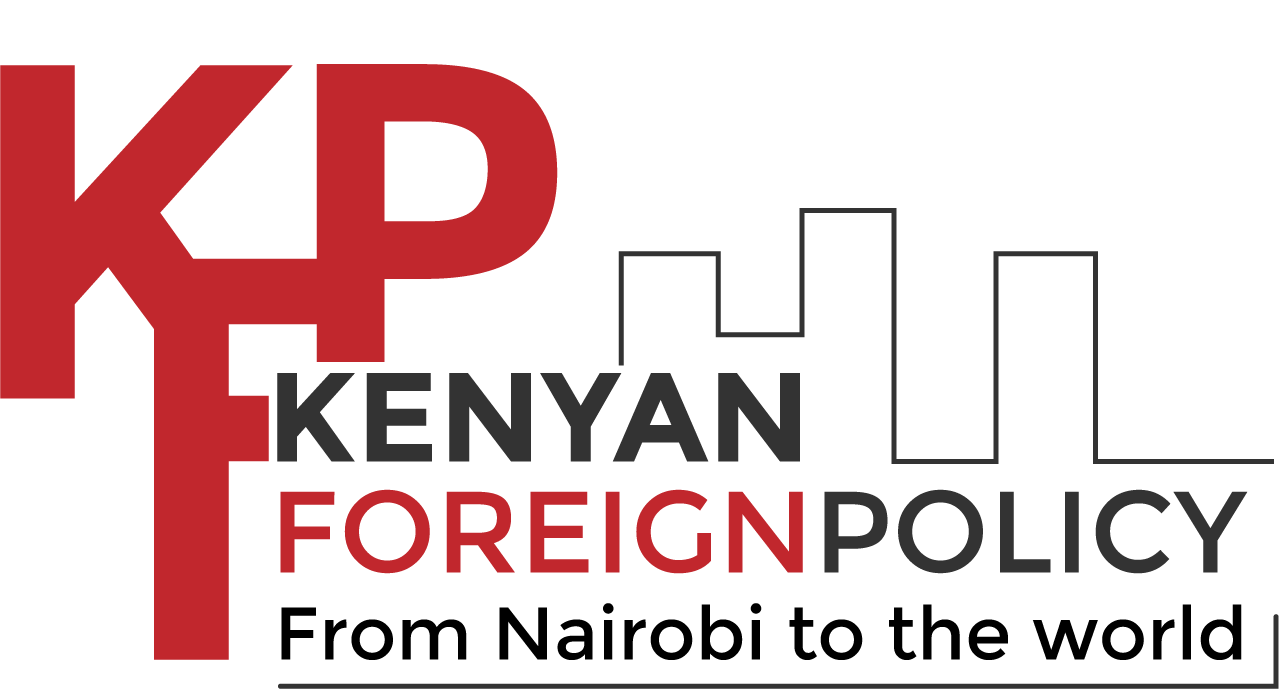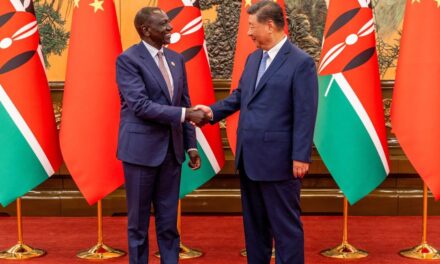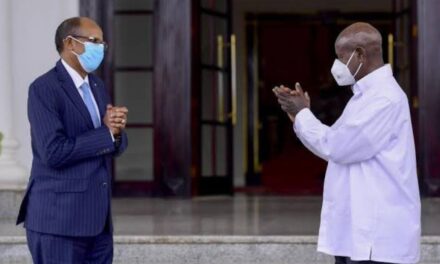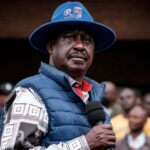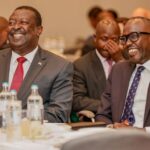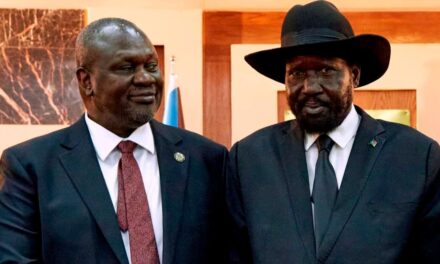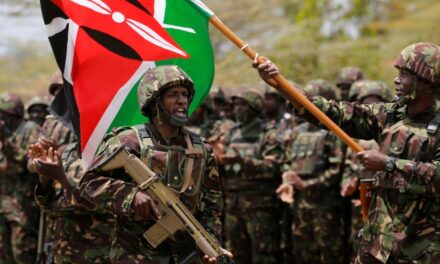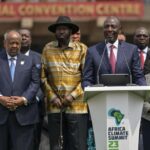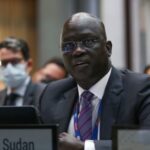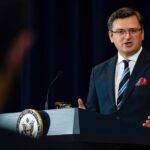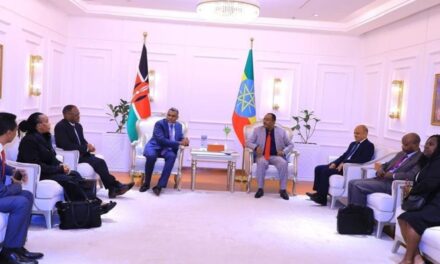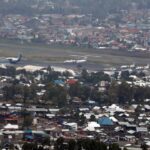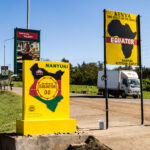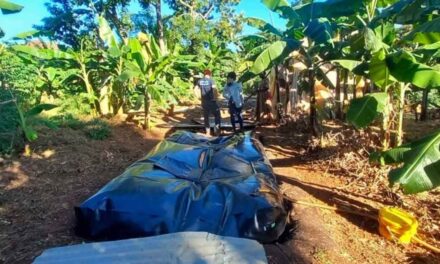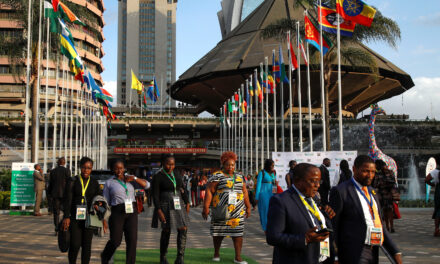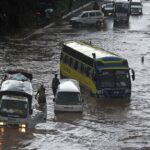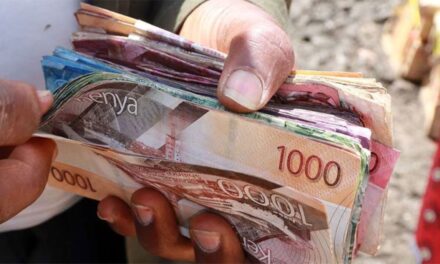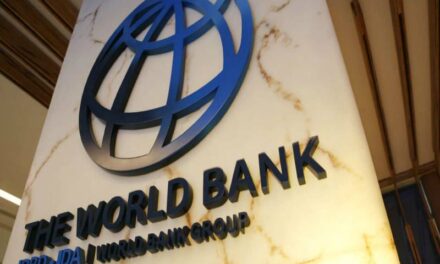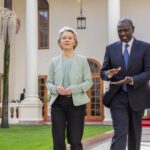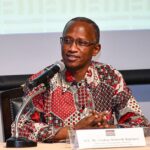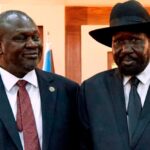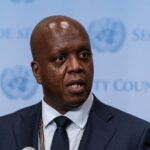

By Mwangi Maina
| August 7, 2024

Kenyan Raila Odinga and Djibouti’s Mahamoud Ali Youssouf are both candidates to succeed Moussa Faki Mahamat. Montage JA © PHILL MAGAKOE / POOL / AFP ; TASS/SIPA
The race for the African Union Commission’s top post has narrowed to a four-horse competition between Djibouti’s Foreign Minister Mahmoud Ali Youssouf, former Kenyan Prime Minister Raila Odinga, former Mauritius Foreign Minister Anil Gayan, and Madagascar’s former foreign minister, Richard J. Randriamandrato.
These four candidates met the AU’s deadline on Tuesday, August 6, and are vying to succeed Chadian Moussa Faki, whose two terms of eight years will end in February next year.
Richard J. Randriamandrato
Madagascar is the new entrant for the African Union Commission (AUC) chairperson position race, nominating its former foreign minister, Richard J. Randriamandrato.
Antananarivo submitted its candidature on the day the deadline was set to lapse, choosing the sacked minister, who was removed by presidential decree after voting in favour of a resolution at the UN General Assembly in October 2022 condemning Russia’s “illegal” annexation of four regions of eastern Ukraine.

Madagascar was one of the African countries that did not support the US resolution condemning Russia’s invasion of Ukraine.
Former Madagascar President Hery Martial Rajaonarimampianina Rakotoarimanana had once signalled interest in the position but failed to secure the backing of the incumbent government.
Anil Gayan
Mauritius candidate Anil Gayan is a lawyer and former foreign minister with extensive knowledge of the African Union’s architecture and the operations of the continental body’s commission.
This is not his first attempt at the position. In 2016, his government in Mauritius endorsed his candidature for the AUC top job, which was ultimately won by Moussa Faki of Chad, the current outgoing chair.
Gayan has been extensively deployed by the African Union for various assignments. Notably, in July 2013, he led an AU-appointed investigation team to examine the circumstances surrounding the killing of Abyei’s paramount chief. Additionally, he was part of the United Nations mediation in Guinea-Bissau in 2008.

Continental affairs experts consider this one of the most fascinating competitions Africa has ever seen, generating significant buzz and speculation.
“The elections for the AUC Chair will be Djibouti vs. Kenya Round 2. In 2020, Kenya defeated Djibouti for the non-permanent UNSC seat. Despite Kenya being endorsed by the AU, Djibouti still went ahead and challenged Kenya at the UN. An interesting battle ahead,” remarked Sylvanus Wekesa on an X post.
Wekesa is a foreign policy expert and a Research Associate at the African Leadership Centre, King’s College London.
Former Seychelles Vice President Vincent Meriton, who had shown interest, did not have his candidacy submitted by his country, reportedly because of his medical status.
Meanwhile, Somalia withdrew its former foreign minister, Fawzia Yussuf’s, bid to support Djibouti’s candidacy.
Geographical divisions limit the competition to countries from the eastern African continent, with Chadian Moussa Faki representing the central African region for two terms.
The Eastern African region has never produced a commission chairperson, but it has previously produced a deputy from Kenya, Erastus Mwencha, who served for two terms, and the current holder, Dr. Monique Nsanzabaganwa from Rwanda.
Mahmoud Ali Youssouf
Djibouti’s candidate, Mahmoud Ali Youssouf, has been the foreign affairs minister since 2005, bringing vast knowledge of the African Union architecture, including the operations of the commission, having sat on the continental Executive Council for over 19 years.
The Executive Council, comprising all 55 African foreign ministers, coordinates and decides on policies in areas of common interest to the Member States and answers to the Assembly of African leaders, which meets annually in February.
Though not as outgoing as his competitors, Mahmoud is well-regarded on paper. His campaign leverages support from the ten African Arabic countries, the Islamic Cooperation Organisation, and the Francophone bloc.
Mahmoud’s fluency in French, Arabic, and English gives him a relative advantage in Arab and Francophone countries.
He has already entered the lion’s den by campaigning in Nairobi on Tuesday and delivering a special message from Djibouti’s leader to President Ruto.
In a tweet, Mahmoud, seen as the dean of foreign ministers in Africa for his long tenure, noted that he “came to Nairobi, an important stage of my campaign, to seek advice from President Ruto, who is the AU champion for reforms and climate change. It is obvious to me that I will certainly have to work with him on these critical issues if I am elected.”
Raila Odinga
On the other hand, local politics and a youth revolt have derailed Kenya’s candidate Raila Odinga’s campaign.
His main backer and funder, President Ruto, was previously a frequent flyer but is now grounded by the Gen Z noise.
Pundits argue it will be fascinating to watch how he campaigns for Raila continentally in the coming months.
On Wednesday, Ruto said he spoke to Mauritius Prime Minister Pravind Kumar Jugnauth on AU reforms and Kenya’s bid for the AU Chair, hinting at efforts to convince Port Louis to support Raila.
Odinga relies on his pan-Africanist influence, along with support from his endorser, William Ruto, which will be closely measured as campaigns intensify across various capitals.
However, Odinga has a history of controversial remarks that have strained relations with some Eastern African capitals.
In March 2022, during the Kenyan presidential election campaigns, Odinga referred to neighbouring countries Ethiopia, Uganda, Somalia, and South Sudan as the ‘worst’ in the world in a diplomatic remark many deemed reckless.
In the video, he stated, “Kenyans do not want to be compared with the worst in the world.”
Mogadishu’s support for Djibouti’s candidate was expected, as Raila Odinga is a staunch supporter of Somaliland, which Mogadishu considers a separatist state and claims sovereignty over.
Your support empowers us to deliver quality global journalism. Whether big or small, every contribution is valuable to our mission and readers.
